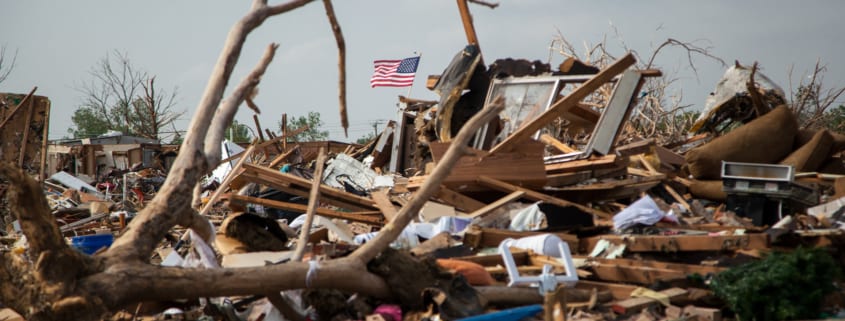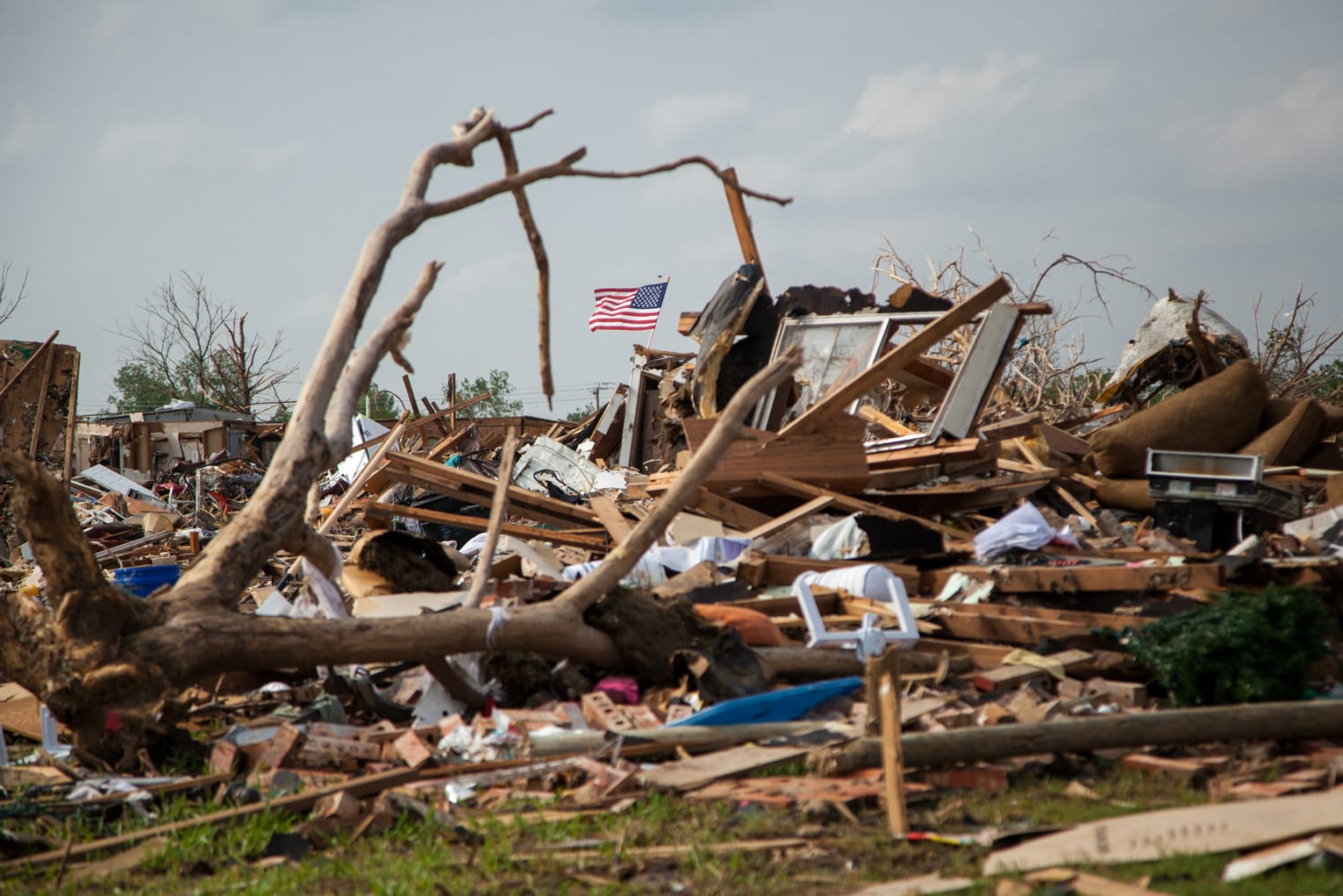Does Home Insurance Cover Tornado Damage? Be Aware of Regional Limits to Tornado Insurance Coverage
Does Your Home Insurance Cover Tornado Damages?
Good question! Imagine coming home from work to find your entire neighborhood, not just your home, completely obliterated. That’s what happened to thousands of homeowners in Moore, Oklahoma, on May 20, 2013, when an EF5 tornado destroyed more than 13,000 homes, killed 25 people, and caused more than $2 billion in damage.
Tornadoes can strike almost anywhere in the United States, but are particularly common in the Midwest and South Central USA, the region known as Tornado Alley. The insurance industry classifies tornadoes as windstorms, and most homeowner’s policies will cover the damage your home sustains in a tornado, including your personal belongings, the cost of loss of use of your home, the dwelling itself, plus any additional structures on your property, such as sheds, carports, and garages.
But as with all things insurance, don’t assume your policy does. Get it out and read the exclusions and limitations, or call your agent and ask. (It’s also worth repeating that no standard homeowners policy covers the flooding or water damage that can accompany a tornado. You need separate coverage for that.) While you’re at it, see how much coverage your policy provides. Even with the recent downturn in property values, if your policy is more than a few years old, it may not be sufficient to repair or replace your home and its contents in today’s market.
What’s Covered in Standard Homeowner’s Policies?
Windstorm is one of many perils classified by homeowner’s insurance policies. Others include fire, theft, and vandalism. These perils are typically covered in open peril insurance policies as standard coverages, sometimes called package policies. But you should be aware of limitations to homeowner’s policies, especially with regard to tornado insurance.
Unless you obtain extra coverage, known as a policy extension, your standard homeowner’s policy may not cover all of your losses if your house is flattened by a tornado. Some insurance providers limit the amount of damage your policy will cover, leaving you with a high deductible. Most insurers restrict windstorm damage coverage if you live in Tornado Alley. If you live in an area prone to tornadoes, you would be well advised to review your homeowner’s policy and purchase extended, peril-specific coverage.
The problem for many homeowners in Tornado Alley is that the risk of tornado damage is so much higher that an insurance company doesn’t ask “if,” but “when.” In such cases, the only way to get adequate tornado insurance is to add an endorsement to your standard policy. In addition, many state governments in Tornado Alley offer separate insurance policies to pick up where the insurance industry is reluctant to go. The best way to know if you have adequate tornado insurance is to carefully read your policy and talk to your insurance agent.
What to Do Before Tornado Damages Your Home?
Strong tornadoes typically strike in the spring and summer, so now is the perfect time to make vital preparations. Review your homeowner’s insurance policy in detail to make sure you have enough tornado insurance to recover from a complete loss. If your home is covered for $200,000, you should carry an additional $100,000 to replace your lost possessions.
Take a thorough inventory of your possessions and file this list, as well as other important documents, in a safe deposit box away from your home. It’s also a good idea to take videos or photographs of your home and major possessions, which will provide your insurer with a valuable record if everything is lost in a tornado.
Definitely have a plan in place so you and your family will know what to do if a tornado strikes. Know which evacuation routes to take, or if running away is impossible, take cover in a safe room such as a basement.
What to Do After Tornado Damages Your Home?
But what to do after a tornado? The sooner you file your claim, the sooner your insurance will do its job. If your home is merely damaged but still inhabitable, carefully document every repair you make so your insurance will reimburse you. If you have to live in a hotel for a few weeks, keep all receipts so your living expenses can be reimbursed.
The first settlement check you get will most likely be an advance rather than a final payment. Even if it is an on-the-spot settlement, you have the right to reopen your claim later and file for additional damages. Should that be the case, you’ll be really glad you put a video or detailed list of your home and its contents in an off-site safety deposit box.
If your home is mortgaged, your settlement check for home repairs will be made out to you and your lien holder, who probably has the contractual right to withhold a portion of the settlement payment until you can show proof that all necessary repairs have been made. You are, of course, responsible for the deductible according to your policy.
Knowing what your homeowner’s policy does and does not cover is essential to protecting your family and understanding the limits of tornado insurance coverage.

 EINSURANCE
EINSURANCE
 EINSURANCE
EINSURANCE EINSURANCE
EINSURANCE